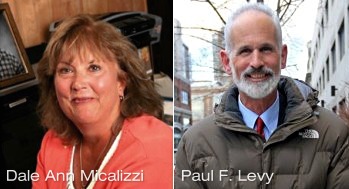I’ve tried to avoid controversy, but since my reading audience has dropped by a few thousand readers after departing my previous CEO position a few years back, I doubt that this will cause me any more problems as a consultant than I’ve already caused by expressing my opinions in previous posts. So, for those of you who are still dependent upon me for financial support, I apologize.
This morning, I read an article in the Pittsburgh Post Gazette by John Hayes entitled “Meet Your Neighbors: The Bears,” about black bears living in Pennsylvania. The essence of the piece is that there are about 18,000 bears living among the 12,000,000 citizens of Pennsylvania, yet there are only about 1,200 bear-related complaints to authorities a year. The bigger issue, however, is that there have been no reported deaths caused by black bears. They don’t eat people.
During this same period of time, I read a post by my friend and fellow patient advocate, Dale Ann Micalizzi, referencing an article about the former president of Beth Israel Deaconess Medical Center (BIDMC) in Boston, Paul Levy, another nontraditional hospital CEO who espouses transparency. “Admiting Harm Protects Patients” is the article appearing in today’s Las Vegas Sun. In my book, Taking the Hell out of Healthcare, which Paul graciously endorsed on the cover page, we talk about patient rights, patient advocacy, and the need to have someone with you during your hospital stay to ensure that you are not going to become a statistic. In today’s article, Paul is recognized for the work that he did with his blog — a blog which I encouraged him to write and to keep writing — in which he challenged the hospitals of Boston to reveal their mistakes, to stop keeping the infection rates and other problem statistics secret.
Because he was trained as an economist and a city planner, Paul Levy was considered an outsider by his peers when he took over the troubled Deaconess hospital, but as he quickly turned it around, he did so through the eyes of an outsider. In December 2006, he published his hospital’s monthly rates of infection associated with central-line catheters, which are inserted deep into the body to rapidly administer drugs or withdraw blood. These central line infections, which can be caused by nonsterile insertion of the catheter or not removing it soon enough, are preventable. The Centers for Disease Control and Prevention estimate 250,000 central-line infections occur annually, costing $25,000 each and claiming the lives of one in four infected patients.
 He then challenged the other Boston hospitals to do the same. He was accused of self-aggrandizement, egomania, and numerous other witchcraft-like things, but the bottom line was that the number of infections went down, and they went down because the staff and employees wanted to do better and wanted them to go down.
He then challenged the other Boston hospitals to do the same. He was accused of self-aggrandizement, egomania, and numerous other witchcraft-like things, but the bottom line was that the number of infections went down, and they went down because the staff and employees wanted to do better and wanted them to go down.
What else happened at Beth Israel Deaconess?
• Hospital mortality of 2.5 percent, which translates to one fewer death per 40 intensive-care patients.
• Cases of ventilator-associated pneumonia, from 10-24 per month in early 2006, to zero in as many months by mid-2006.
• Total days patients spent on ventilators from 350-475 per month in early 2006 to approx. 300 by mid-2007.
• The length of an average intensive care stay from 2005 through 2009, the average stay was reduced by a day to about 3 1/2 days.
(See my previous post on outrageous claims at my prior place of employment.)
Well, in today’s article about the bears, I read that “when bear attacks occur they are generally very brief, and injuries can include scratches and bites.” Here’s the part I had not anticipated from the bear conservation officer: “Fight back, don’t play dead. Unlike other North American Bears, black bears don’t consider people to be food. When it realizes what you are, or gets a painful punch in the face, it is likely to go away.” I believe it’s a useful metaphor.
If you or your organization would like to hear a CEO or two speak about patient advocacy (and way better healthcare), I’m sure I know a former teacher/musician and a former city planner who would welcome the invitation.
Patient advocacy is in your hands!
Health 2.0 Leadership (1 of 2) from Nick Jacobs, FACHE on Vimeo.


 These are just a few of the very effective mechanism that can be introduced to create
These are just a few of the very effective mechanism that can be introduced to create 




